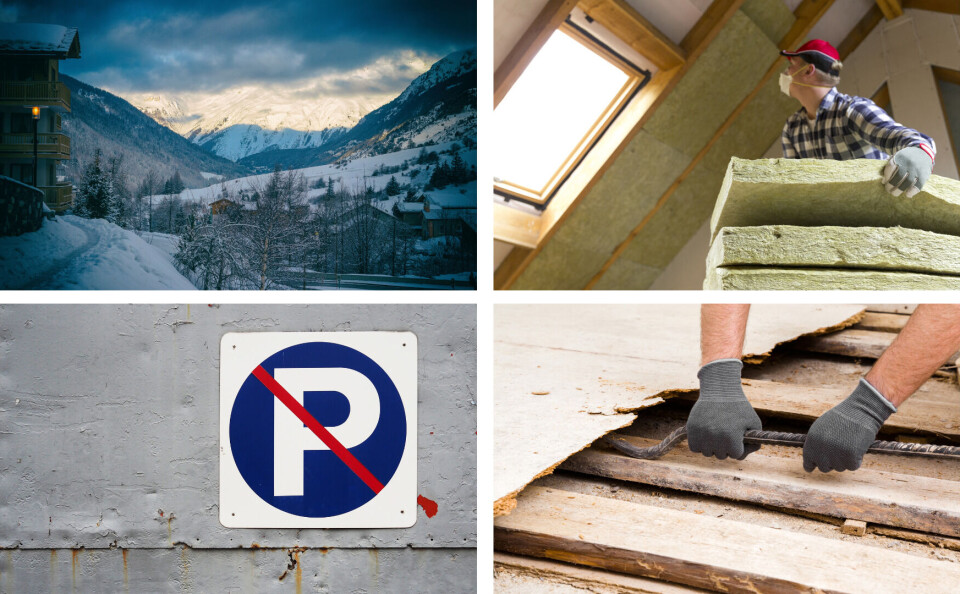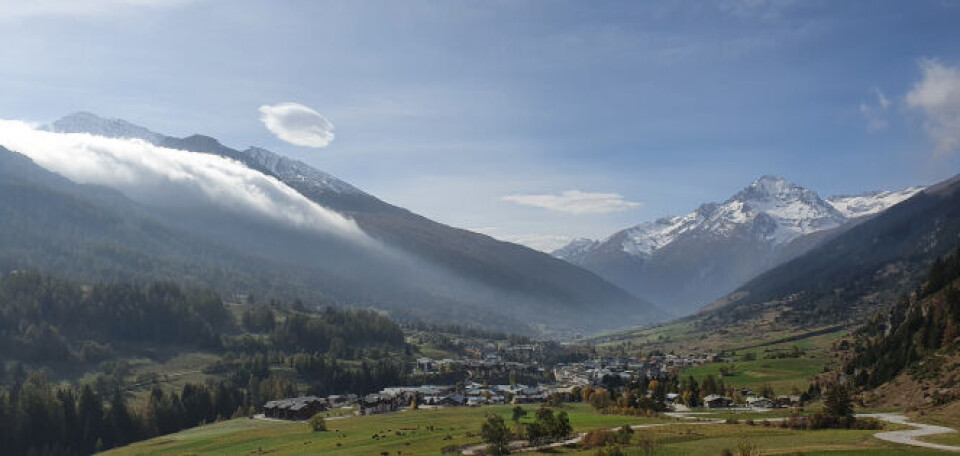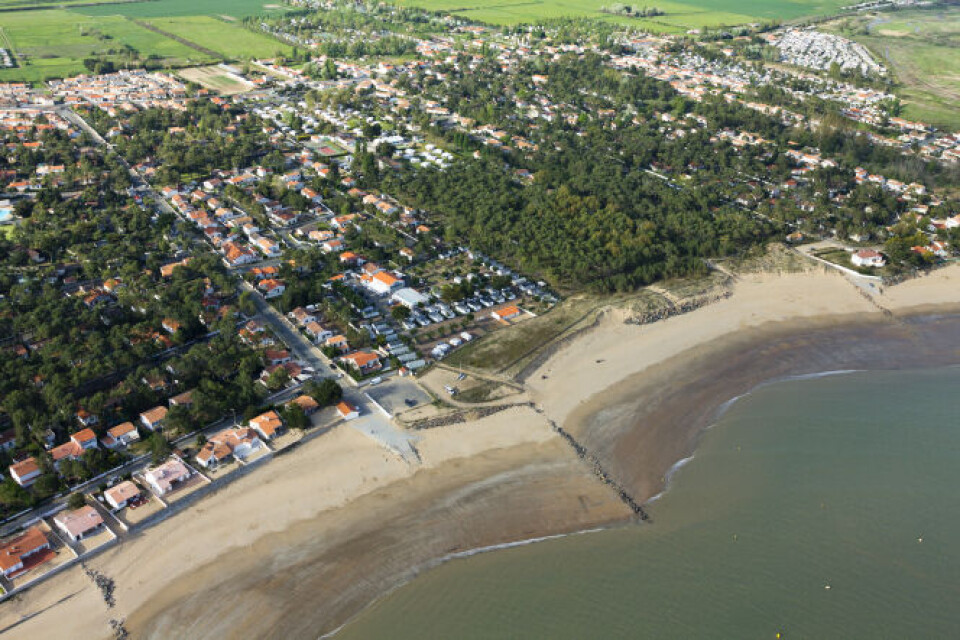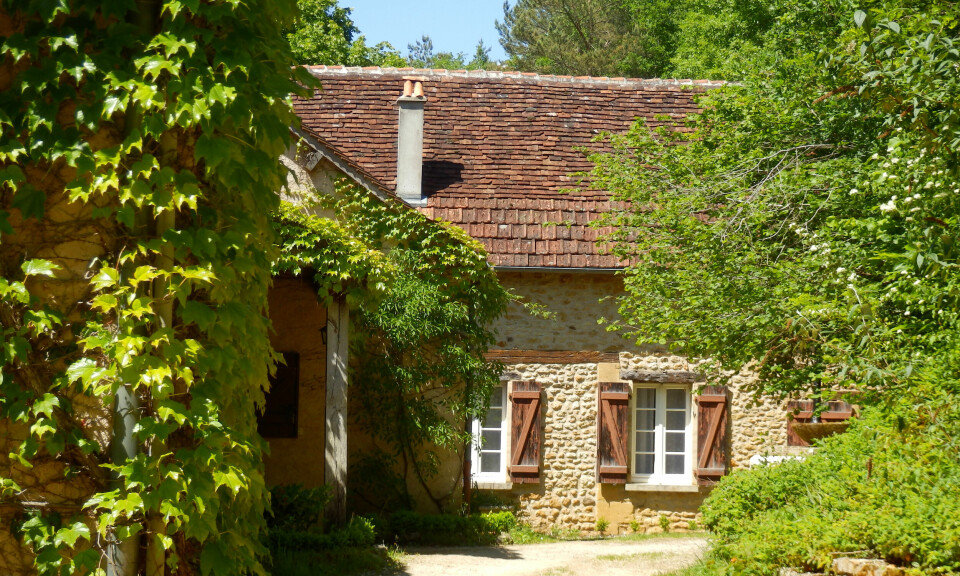-
Photos: Louis XIII-style château near Paris up for auction
The 400-year-old property has 32 hectares of parkland
-
Fatal HGV crashes: Goodyear in court in France over tyre defect claims
Investigators allege the firm knew about the problem but did not issue a recall
-
How to prepare your pool for the summer season in France
You must 'wake up' your pool and treat the water before taking a dip
Where is the best place to buy a second home in France?
Our property news wrap also looks at a neighbour dispute over a right of way, liability for latent defects when selling a property and MaPrimeRénov' bugs

Alpine town named best place to buy a second home in France

The Savoie resort of Val-Cenis has topped a list of the best places to buy a second home in France, thanks to its year-round village atmosphere, leisure amenities and lack of burglaries.
The list, compiled by Le Figaro, saw Val-Cenis singled out for its lack of mass tourism, too.
Read more: ‘France’s favourite village’: See 14 contenders for this year’s vote
Local estate agent Daniel Garnier, director of Agence Immobiliere de Haute Maurienne, told the newspaper: “We are not Val d'Isère, we are not La Plagne. Our name is not very well known and that's good. We are still a bit underrated.”
Val-Cenis, located near the Italian border in the Vanoise National Park, actually consists of five villages (Termignon, Lanslebourg, Les Champs, Lanslevillard and Le Haut) brought together in a single commune in 2017.
A little more than 2,000 people live here year-round, and the place also benefits from being only 25km from a motorway and one of the snowiest resorts in France.
Read more: Energy efficiency rules could put French ski resorts at risk
“There is a real village life here all year round,” Le Figaro said.
“The commune stands out in terms of security (no burglaries were recorded in 2021, nor any theft from cars), and thanks to its quality leisure facilities (including 24 restaurants with good ratings).
“Above all, nature is preserved with a whole part of the Vanoise National Park integrated into the commune.”
In second place was the seaside town of La Tranche-sur-Mer, in the Vendée.

Nicknamed ‘Little California’ for its long beaches, it boasts a level of sunshine that is almost on a par with the Côte d'Azur, an attractive tax system for second-home owners, good restaurants and a cinema.
While it gets busy in summer, when the population jumps from 2,900 to more than 100,000, Olivier Belembert of the Century 21 Côte de Lumière agency says the town remains ideal for families.
"It's not necessarily a spot where young people come to party, unlike some other seaside towns", he told the newspaper.
The list was compiled by comparing the 150 French towns with more than 2,000 inhabitants and the highest number of second homes.
Read more: Second home tax increase: Where in France may be affected by new law?
Assessment criteria included affordability (property prices and property taxes), services, crime rate, leisure activities, shops and climate.
Villers-sur-Mer (Calvados), Carcans (Gironde) and Les Belleville (Savoie) rounded out the top five.
Government promises improvements after MaPrimeRénov' site crashes
Frustration is growing among users of the flagship grant programme for energy-saving home renovations, MaPrimeRénov’, after its website crashed last month.
It follows a report by consumer watchdog Défenseur des Droits last October, revealing it had received 500 complaints about the scheme after less than two years of operation.
Most concerned the impossibility of communicating with anyone at the programme, which was designed as an internet-only service.
Read more: Couple warn of French renovation grant ‘frustrations’
Now the website is under scrutiny again, after a computer glitch prevented new applications.
The problem was reported by an internet user on the Total Bug website on February 22, after their application for a grant was thwarted in the final stages by an error message stating: "A technical anomaly has been identified on our website. The creation of a MaPrimeRénov' account and the submission of new applications are temporarily unavailable.”
Another user added that she had experienced the same problem on the site four days earlier while submitting her application, while others were simply told: "A processing error has occurred.”
Read more: Explained: How to apply for a renovation grant for your French home
The government is already under pressure to make improvements and end delays getting money.
Christophe Béchu, Minister for Ecological Transition and Territorial Cohesion, has promised: "As of September 1 this year, Mon Accompagnateur Rénov' will be implemented, which should facilitate the system.”
Read more: Homeowners applying for French renovation grants will need consultant
He insisted that only 2% of applications were problematic, stating that "average delays are five weeks – two weeks for the grant application, three weeks for the payment".
An online petition deploring “almost constant” MaPrimeRénov’website crashes, “telephone advisers who do not master their subject and who simply pass on the information to their superior” and “errors in the management of files” has so far attracted almost 13,000 signatures.
Neighbours clash over parking on right of way
The latest chapter in a long-running neighbour dispute in Normandy has put the spotlight on the legality of parking a car on a right of way.
Angélique Poilly and Lionel Lucas bought their house at the end of a cul de sac in Incheville, Seine-Maritime, in December 2019.
To access their property, they must use a private road belonging to the Becquet family, their neighbours.
Read more: Natural hazards, Airbnb in court, right of way: French property update
However, when Ms Poilly’s brother parked in the dead end, the Becquets, armed with a baseball bat, insisted he move the car as he had no right to stop there and was also blocking them in.
The parties came to blows and both wing mirrors of the car were broken, reports Actu.fr.
For his part, Mr Becquet says he recognises his neighbours’ right of way as pedestrian only and points out that there is provision for parking in a designated space a few metres from their house.
He says the family have collected numerous photos showing vehicles belonging to their neighbours or their guests parked outside their gates preventing them from entering and leaving their property.
Read more: Can you leave your car parked on the street in France?
"What we want is for them to respect this right, which is mentioned on their title deed, on ours, and park in the dedicated car park," his son added.
Ms Poilly and Mr Lucas, however, claim they were told by their notaire when they bought the house that their right of way made allowances for vehicles.
Ms Poilly added: “He [Mr Becquet] has installed large concrete blocks with chains so that we can’t drive the car into our yard.”
The local mayor said it was not his job to manage the neighbours’ problem.
“The municipal police have met with them on several occasions and we have proposed that they meet with a mediator,” he explained.
Reporting on the dispute, Le Figaro cites a 2019 legal case in which France’s highest court ruled the owner of an enclosed property may not use their right of way other than to cross and access their land.
“Apart from an amicable agreement between the two parties, vehicles may not be parked either on the right of way or elsewhere on the neighbour's land,” it says.
Seller ordered to compensate for latent defects – even though the problem has already been fixed
Just because a fault has subsequently been repaired does not mean a seller escapes liability for a latent defect in a property, a court has ruled.
The case concerned a flat whose floors were discovered to have been dangerously compromised by wood-eating insects after the new owner had taken possession of it.
The new owner said that, had he known this before the sale, he would have negotiated a lower price or pulled out completely, and claimed compensation from the seller.
Read more: French property: How long after buying can I claim for hidden faults?
The seller, however, pointed out that the floors of a copropriété (co-ownership building) are deemed to be common parts, and as such it was the responsibility of the syndicat des copropriétaires (the technical term for all of the owners) to maintain and repair them.
Read more: Copropriétés: Co-ownership in France explained
He said he had obtained the necessary permission from the co-owners to carry out this urgent work and the fault was now fixed, reports Le Figaro.
As such, he argued, the new owner no longer had any reason to ask for compensation.
The judges disagreed. Their ruling in the Cour de cassation last month (February 8) hinged on the fact that the law around latent defects (vices cachés) only concerns the relationship between the buyer and the seller, not a third party.
Read more: Vendors in France warned ‘hidden defect’ clause not always guaranteed
It is the seller, they said, who is obliged to guarantee there are no latent defects in a property.
The fact that remedial work had subsequently been carried out by the copropriété did not affect this contractual relationship between buyer and seller.
In a related case in 2011, the court explained by way of contrast, a buyer who had secured a repair of the defects from the seller himself could no longer claim anything.
Landlord fined for renting out beds in second home on Airbnb
The Paris Court of Appeal has fined a landlord €50,000 for renting out separate beds in his second home instead of the whole property.
The landlord had what is known as a mobility lease (bail mobilité) – a short-term, simplified and flexible contract introduced in 2018.
Previously, traditional leases lasted a minimum of one year. The mobility lease, however, is aimed at people who need furnished accommodation for periods of between one and 10 months (such as temporary workers, students, anyone in vocational training or on apprenticeship contracts) and who might otherwise have had to refuse a job offer or internship, for example, because the traditional process of finding accommodation was a problem.
However, this contract only applies to the rental of a whole property – not of rooms or beds within that, the court ruled on February 16.
Dividing it up constitutes a commercial activity and falls under different rules.
In this case the owner made a total of €4,235 in a single month from renting four beds (about €1,059 per bed) in a shared room with common areas, reports Le Figaro.
This far exceeded the €780 of rent he would have received for the flat in its entirety.
The court agreed with the City of Paris, which brought the case, that the disputed property had effectively been “transformed into a group hotel room”.
Read more: Airbnb found liable for illegal sublet of Paris home
As well as the fine, the landlord will have to pay €1,500 in legal fees and the court ordered that the flat be returned to its original use as a home.
In Paris, a homeowner can rent out his main residence on Airbnb for 120 days a year, but cannot rent out his secondary residence unless a change of use is granted by the City of Paris or he rents it under a mobility lease.
Related articles
Anti-Airbnb bill, drought damage: Five French property updates
MAP: See where house prices have risen the most in France
French property owners: in-depth look at new mandatory declaration
























